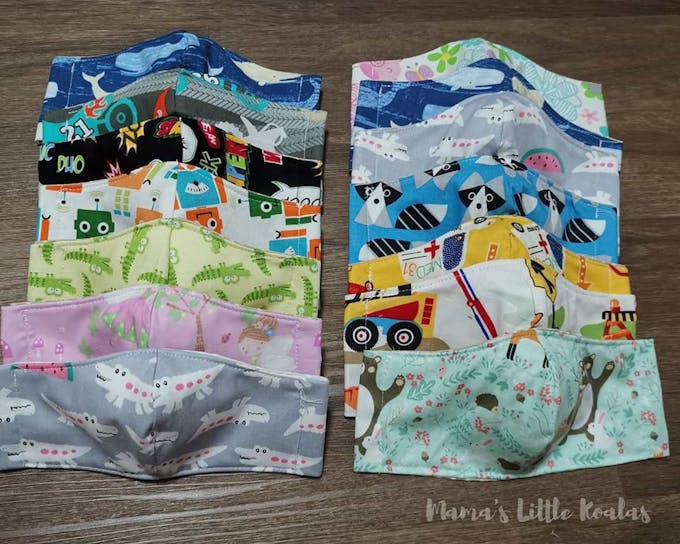As people all over Asia scramble to protect themselves from the spreading Covid-19 coronavirus by panic-buying surgical face masks, antiseptic wipes and other medical disposables, how can their consumption patterns be changed in a way that best protects the planet?
To continue reading, subscribe to Eco‑Business.
There's something for everyone. We offer a range of subscription plans.
- Access our stories and receive our Insights Weekly newsletter with the free EB Member plan.
- Unlock unlimited access to our content and archive with EB Circle.
- Publish your content with EB Premium.
The first method could be for consumers to opt for masks that they can use again, rather than buy the disposable surgical variety.
Surgical masks have gone out of stock in supermarkets and pharmacies all over the world, while desperate consumers searching online for masks have reported incidences of profiteering and scams.
Singapore-based sustainable wearables brand Mama’s Little Koalas has been busy making washable cloth masks for children from locally sourced fabric, and is struggling to keep up with demand.
The brand’s masks contain a similar waterproof material found in surgical masks to limit water droplets from the sick making contact with the wearer, as well as droplets from those infected from escaping, and an elastic band to hold them in place.

Reuseable face masks for children made from locally sourced fabric by 33 year-old mother of three Chiu Pei Yu. Image: Mama’s Little Koala’s Facebook page
Chiu Pei Yu, 33 year-old owner of Mama’s Little Koalas and a mother of three, told Eco-Business on Monday that she has sold 200 of her reuseable masks in just two weeks, and has been making 30 a day.
“As long as the user washes the mask every day, they can use it as often as they like,” she said.
Chiu’s masks are selling for S$14 (US$10) each, including courier delivery. She noted that boxes of 50 surgical masks, which usually retail for S$12, have been selling online for between S$50-60 as opportunists cash in on the buying frenzy.
She intends to start making reuseable masks for adults next week, as long as she can keep up with demand.
Chiu reported that the elastic material used to attach the masks is rapidly going out of stock in Singapore, where at the time of publishing there had been 77 confirmed cases of the virus, as more people try to make their own masks at home.
Last week, Taiwanese anaesthesiologist Dr Chen Xiaoting recommended trying cloth masks, with a piece of non-woven fabric inserted into an opening in the mask—as long as they are used correctly and washed properly.
According to the World Health Organisation, masks alone will not prevent people from catching the coronavirus, and must be used in combination with normal hygiene methods, such as handwashing with soap and water.
“If you have a cough, fever or difficulty breathing, then you should wear a mask and seek medical care. If you do not have these symptoms, you do not have to wear masks,” WHO has advised.
There is no evidence that masks protect people who are not sick. However, if people are taking care of those infected with the virus, they should wear a mask, WHO said. According to its advisory video, wearers should not touch the mask while wearing it.
Are reuseable masks less hygienic than disposables?
Professor Seeram Ramakrishna, chairman of the Circular Economy Taskforce at the National University of Singapore (NUS), told Eco-Business that, due to the short supply of surgical facemasks, people are resorting to using “makeshift” cloth masks that are “touted as reusable and eco-friendly.”
“But it is to be noted that these masks are not classified as medical devices, and may not have the required well-defined pore sizes and porosity [of surgical masks],” he said.
A typical surgical mask has a three-ply structure: a waterproof front and back layer, and a sub-micron pore-sized non-woven fabric middle layer.
Reuseable cloth masks serve different purposes, said Ramakrishna, whose work at NUS includes developing reusable sanitary napkins for women. “They [cloth masks] are helpful to maintain hygiene, as they prevent large particulates expelled by the wearer from reaching people nearby, and vice versa,” he said.
Chiu of Mama’s Little Koalas conceded that there has long been a debate as to whether people should use reuseable or disposable masks, and their effectiveness depends on how they are used.
“They are only effective if the user observes basic hygiene rules,” she said, advising users of her masks to wash them every day and dry them in the sun.












